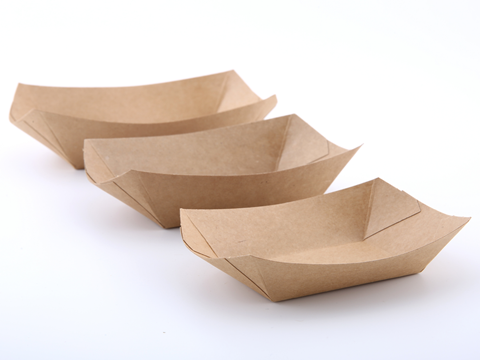
RDM Group’s recycled fibre containerboard and Ecopol’s PVOH functional barrier film have been combined into a packaging solution for aroma-sensitive and food products, among other applications.
Recycled containerboard has posed challenges for the food packaging sector in the past, largely due to contamination risks from the food-grade mineral oil used in food processing machinery.
However, Ecopol’s PVOH film – described as transparent, water-soluble, and biodegradable – has been applied to RDM’s recycled fibre cartonboard as a barrier laminate. This is set to unlock recycled content in the body of the pack while facilitating Class A recyclability in standard fibre recycling streams.
It can also be customized to resist oxygen, grease, moisture, and mineral oils, thus catering to the needs of a range of products, including food. It is recommended for use with aroma-sensitive products or those requiring an extended shelf life.
“By pairing our functional barrier film with RDM Group’s board, we will create packaging that’s not only functional, but fully recyclable,” says Mauro Bonfiglio, vice president of Sales & Marketing at Ecopol. “This will be a true step forward in eliminating virgin plastic waste and making sustainable solutions the new standard.
“Our partnership with RDM Group enables brands to adopt recyclable, functional packaging without compromising performance—paving the way for scalable circular solutions. This collaboration demonstrates the potential of circular design in fibre-based packaging.”
“This pioneering collaboration is an example of the new, cross-industry links that need to be created to meet the demands of the PPWR,” continues Krzysztof Krajewski, chief Innovation and Sustainability officer at RDM Group. “Our goal is to create a more sustainable, recycling-friendly material of the future to drive increased circularity.
“We are now looking for brands and converters to develop new types of packaging using this new PVOH-based solution, and invite potential partners to start projects with us.”
The development comes after Coveris released a board-based, modified atmosphere tray solution combining ‘sustainably sourced’ board with a specially developed EVOH barrier film. Geared towards the meat, fish and poultry sector, it is thought to reduce plastic by 90% whilst maintaining recyclability and shelf life.
Similarly, Elopak, Orkla Home and Personal Care, and Dow have revealed a new line of cartons made from ‘responsibly sourced’ paperboard and coated with thin layers of polymers. Initially, 10% of the plastic layer will contain post-consumer polyethylene, while the other 90% will constitute bio-circular polymers derived from vegetable-based waste like cooking oil.
If you liked this story, you might also enjoy:
The ultimate guide to the Packaging and Packaging Waste Regulation in 2025
How are the top brands progressing on packaging sustainability?
Everything you need to know about global packaging sustainability regulation in 2025
The key to increasing the use of reusable packaging in supermarkets














No comments yet